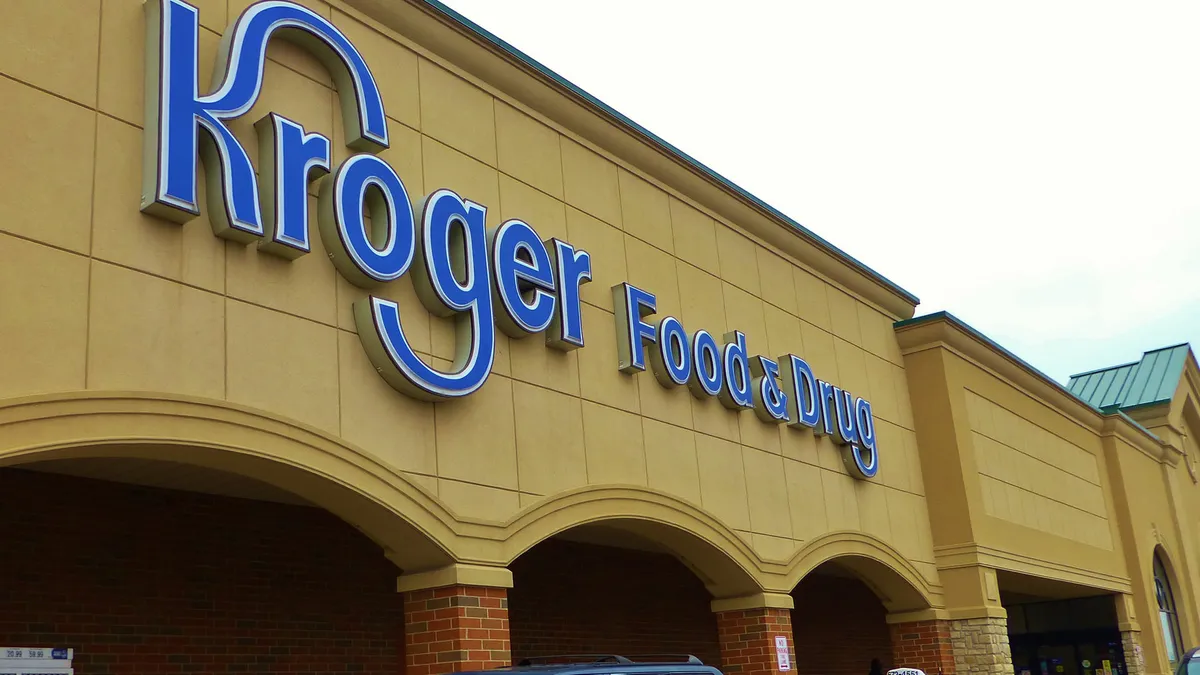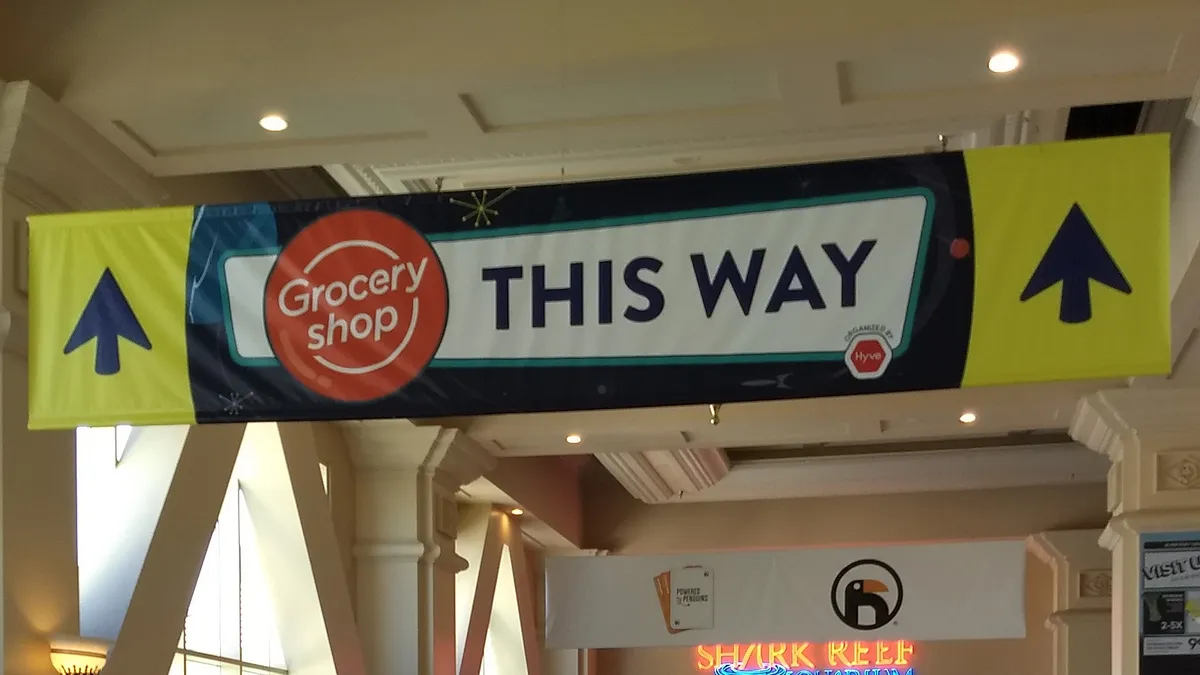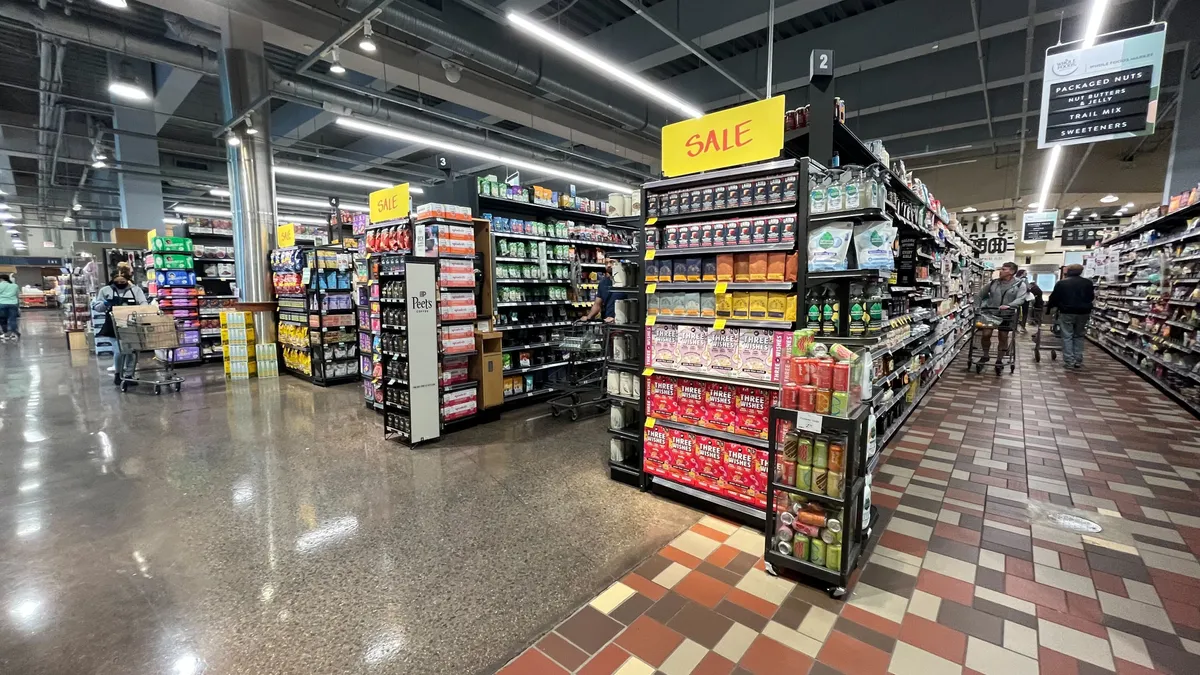Dive Brief:
- Wal-Mart is stealing share from retailers at an “accelerating rate,” according to Loop Capital Markets analyst Andrew Wolf, but Benzinga notes that Kroger, with its rapidly expanding ClickList service, could prove an exception.
- Wal-Mart’s same store sales rose 2% in this year’s first quarter, and its grocery sales beat the industry average by 2.9%.
- Kroger’s same-store sales slip last quarter was worrying, but Wolf projects the retailer will recover and continue to outperform the industry.
Dive Insight:
Spurred by the advances of Amazon and discounters Aldi and soon-to-open Lidl, Wal-Mart has recently been aggressively cutting prices. The collateral damage of this effort has been borne by other retailers, who have had to slash prices further — cutting deeper into their margins in times of food price deflation.
Kroger hasn’t hovered above the fray as much as the Benzinga article indicates. Over the past decade, the company has spent $3.7 billion to lower its prices, according to The Wall Street Journal. Earlier this year, Wal-Mart took aim at Kroger in the Midwest, lowering prices at stores throughout Michigan, Indiana and Kentucky. Kroger, in response, is spending what Wolfe Research analyst Scott Mushkin estimates to be $450 million over the course of this year to stay competitive in the region.
As Loop Capital Markets analyst Andrew Wolf notes, however, Kroger has some serious advantages going for it. Chief among these may be its ClickList service, which allows customers to order online and pickup at the store. The service has scaled quickly and gotten ahead of competitors, with hundreds of the company’s stores now offering it. Also, unlike many retailers that utilize third-party e-commerce providers, Kroger owns the branding and the customer experience of ClickList.
The Cincinnati-based grocer is ahead of the curve in other areas as well. Its private label portfolio is a force to be reckoned with, bringing in more than $20 billion in annual sales. The company’s Simple Truth natural and organic brand is a national leader, raking in more than $1.6 billion per year. Kroger’s purchase of Murray’s Cheese, meanwhile, gives it a trusted brand and deep expertise in a crucial fresh category.
There’s more including meal kits, convenience store formats and store technology that could offer all the efficiency and customizability of online shopping in the aisles. Kroger excels at taking proactive measures, but its success has also painted a bullseye on its back. Don’t expect Wal-Mart to let Kroger go unscathed in the retail battle ahead.










